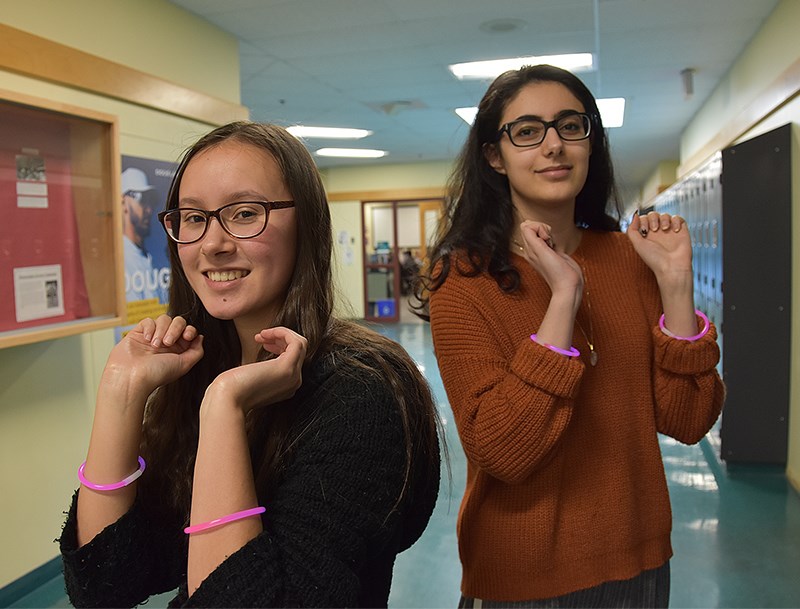High school dances are a fun right-of-passage for young people as they step into adulthood and the world of relationships.
But they can also provide an opportunity for mis-communication, misunderstanding and even sexual assault.
That doesn’t have to happen say two Terry Fox high school students who created a buddy system for their Port Coquitlam school’s winter dance.
Mia Crawford and Dena Yazdaniha were inspired by a discussion of consent culture in their Social Justice 12 class and decided to come up with a way to make sure all students could attend the school dance without worrying about potential problems.
Consent culture is becoming more well known in popular culture, and is being promoted as a way to create more positive relationships and environments, their teacher Ryan Cho says.
Asking for consent before a physical relationship — or before hugging or touching a colleague, a relative, friend or stranger — is a way to respect personal and emotional boundaries and prevent problems from occurring.
The BC Teachers’ Federation is promoting a culture of consent and recently voted to advance it in unions, schools and communities.
“That means providing members with strategies and resources to educate students about the necessity of consent; how to address inappropriate comments, gestures, and physical contact; ways to interrupt harassment and how to serve as effective allies for others,” president Glen Hansman stated in his presidential message last year.
Fox in Port Coquitlam doesn’t have a sexual harassment problem, Crawford and Yazdaniha say, but rather the students wanted to create a culture of respect for one another.
“It’s really about setting a positive tone,” Crawford said.
As the dance was being planned, students placed posters around the common areas letting people know there would be “buddies” who would be available to support them if they felt uncomfortable.
As many as 18 people, including two teachers, volunteered to be buddies and wore glow-in-the-dark bracelets to indicate they were part of the support system. A quiet room was also set up so students could chill out in a safe environment.
“We just want to make sure everyone feels comfortable and safe if they choose to go to the dance,” Yazdaniha said.
Cho said he was proud of the student initiative, which could be a model for future dances in the district and at other schools.
His students took on a number of social justice projects this year and Cho said he was impressed at timeliness of many of the initiatives as the students took on various causes.
“They inspire themselves, I help give them the information they need to see the world differently and support them in finding their own voice,” Cho said.
Student projects ranged from an original song about climate change, social media projects to engage students in social justice projects, poverty work, a clothing drive, a garbage clean up, and surveys and interviews about other important issues. One student interviewed her dad and her brother to explore and contrast their experience of being black men of different generations living in Canada.



